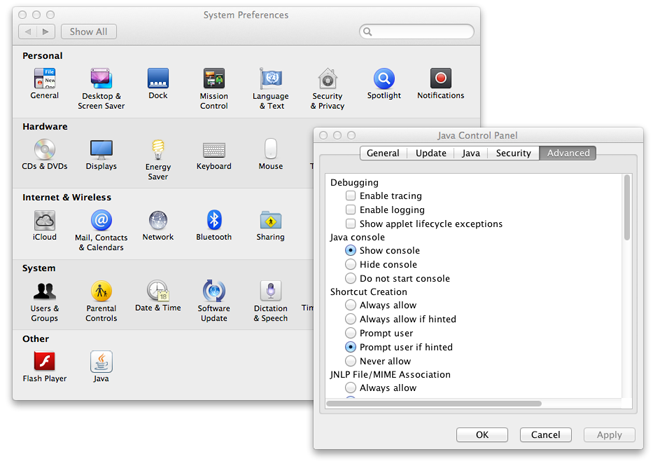

I have titled mine “Java WebStart Downloads.workflow” so that i can easily find it in the coming steps.

This will open up the New Document wizard. When Automater opens up, you can click “New Document” to create a blank document.This can be done by selecting it from the Launchpad, typing “Automater” into the Spotlight search field, or simply locating the icon in your Applications Folder. From your Macintosh system, launch the Automater tool.If you are on an older version of OS X, the pictures and steps may not match up perfectly. Note: The screenshots in this document are tailored towards Apples most-recent version of OS X, Yosemite. Thankfully, there’s a way to get these programs to run automatically as they are downloaded, using Apples wonderful Automater tool. While this isn’t a complete roadblock, it does diminish the convenience factor.
Java applet for mac download#
By default on several operating systems, including Apple’s OS X, these files are not executed automatically, which means they act as a regular download that must be double-clicked (or Command-O, for the keyboard fanatics out there like me) in order to run.
Java applet for mac code#
These are small files that are downloaded and executed, as opposed to embedded code within a webpage. One way Java apps are distributed is called Java Web Start (see here for more information on this technology). Once you *do* find the correct version (or versions), security concerns such as the ones previously mentioned may still keep these apps from performing properly. On paper, this sounds like a good strategy to ensure the safety of user information.īut what if you legitimately have a need to run a Java app? There are so many different versions of Java Runtime Engines (also known as JRE, or the environment in which Java code is executed on an operating system) that finding the right combination can be tricky. Due to several security concerns, Apple, along with several other developers, have adjusted their approach to running Java apps and applets in order to protect consumers from potentially-dangerous code being run on their machines.
Java applet for mac software#
It’s no secret that there have been some issues within the last few years between the folks at Apple, and the folks at Oracle, who now own the rights to the Java language and software engines.


 0 kommentar(er)
0 kommentar(er)
